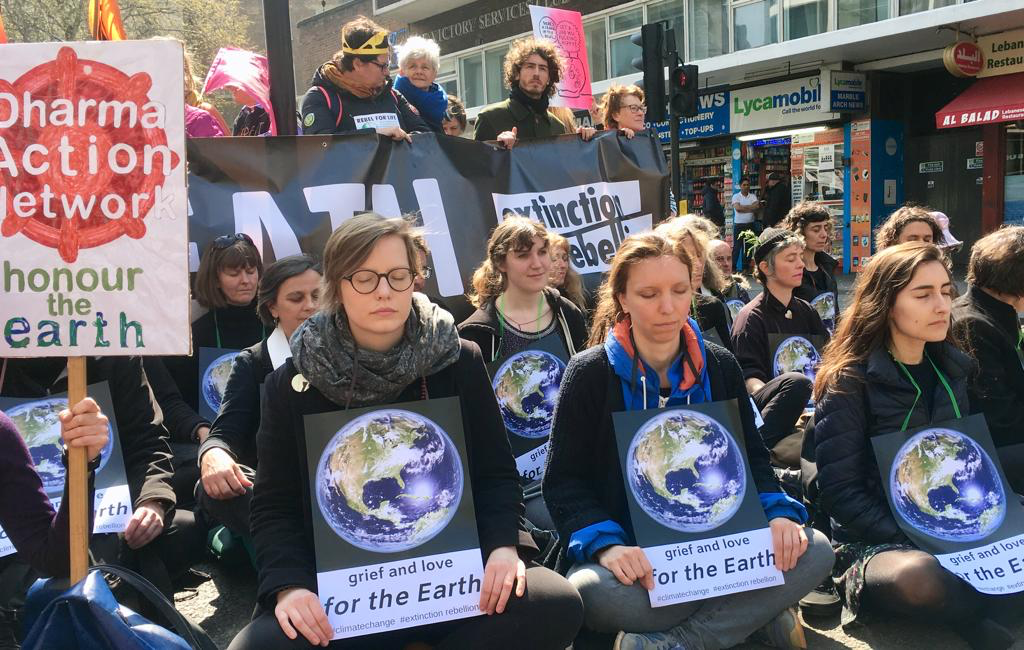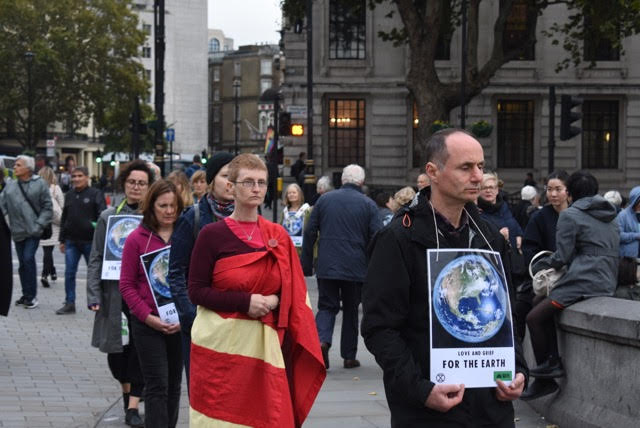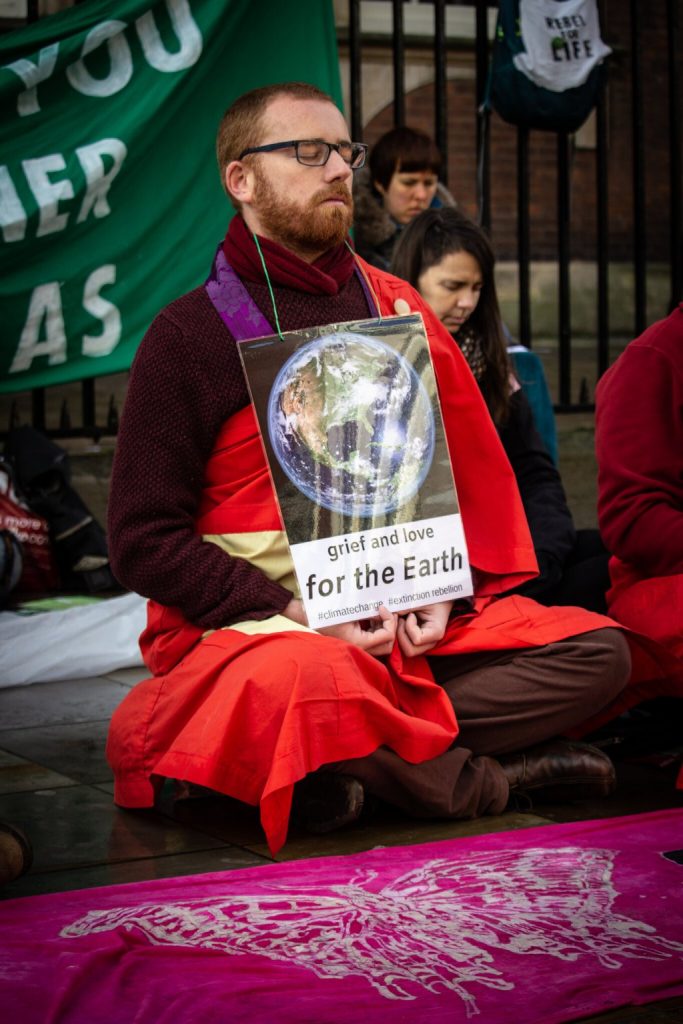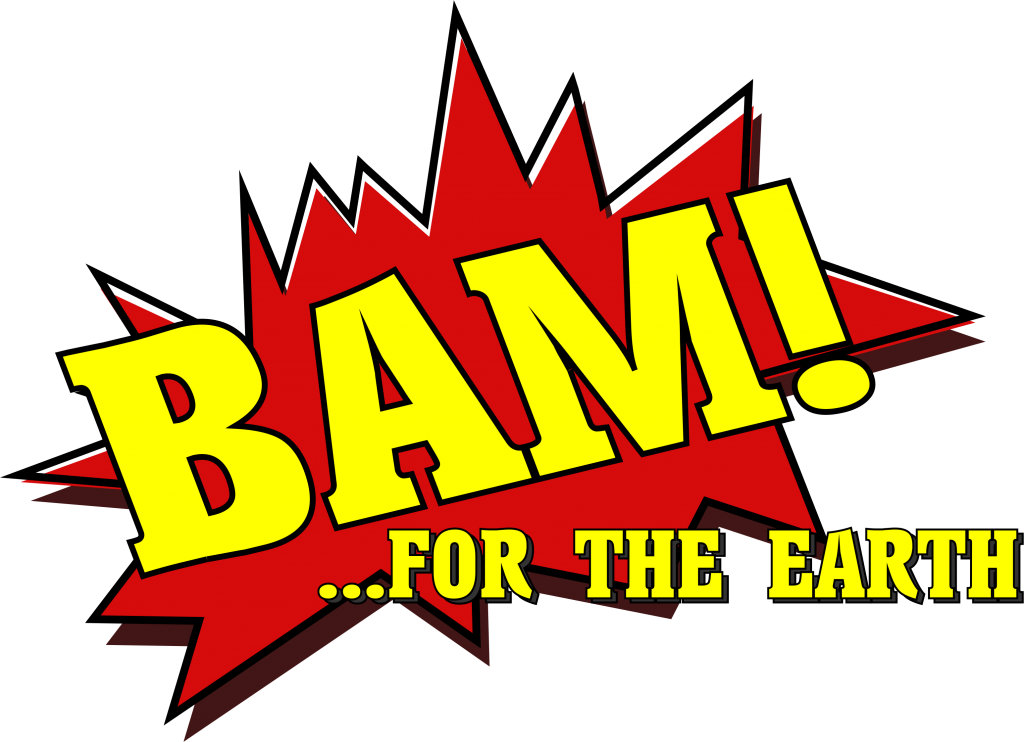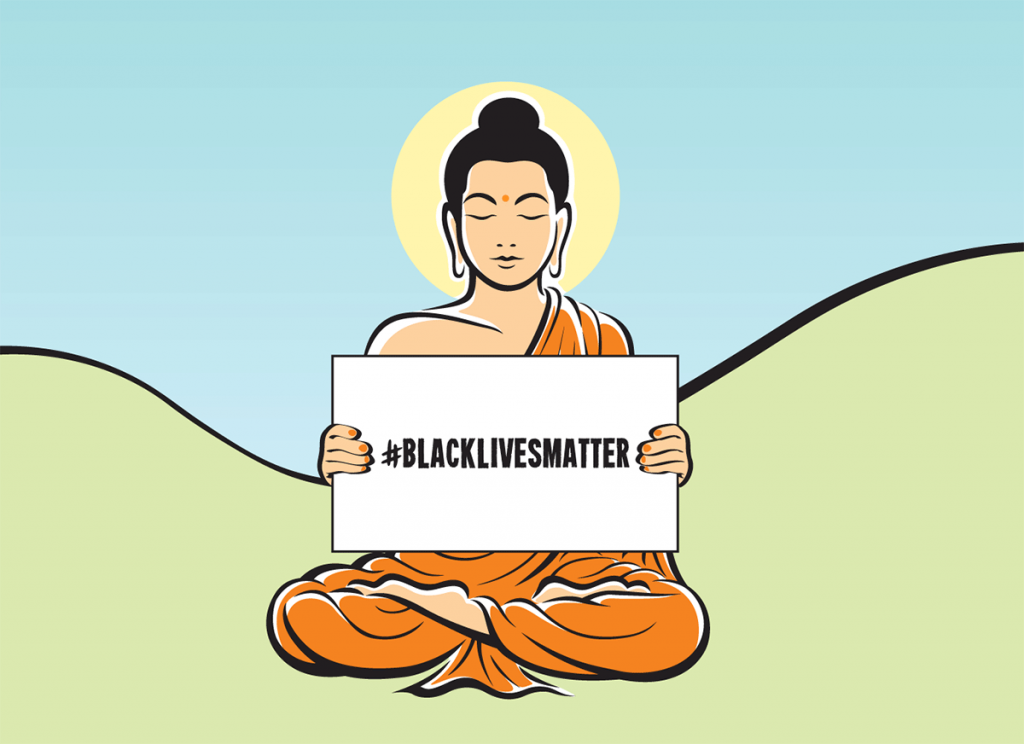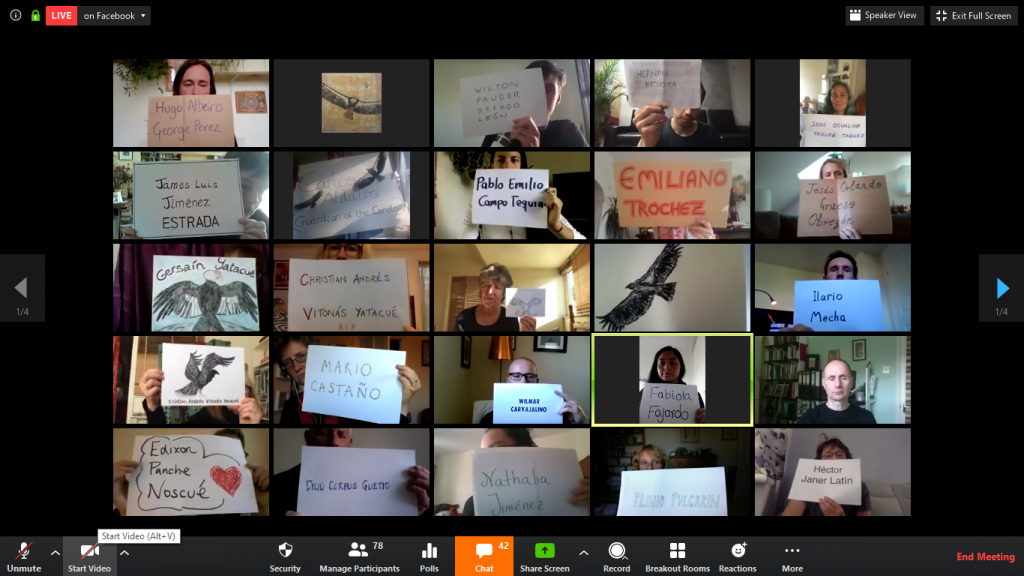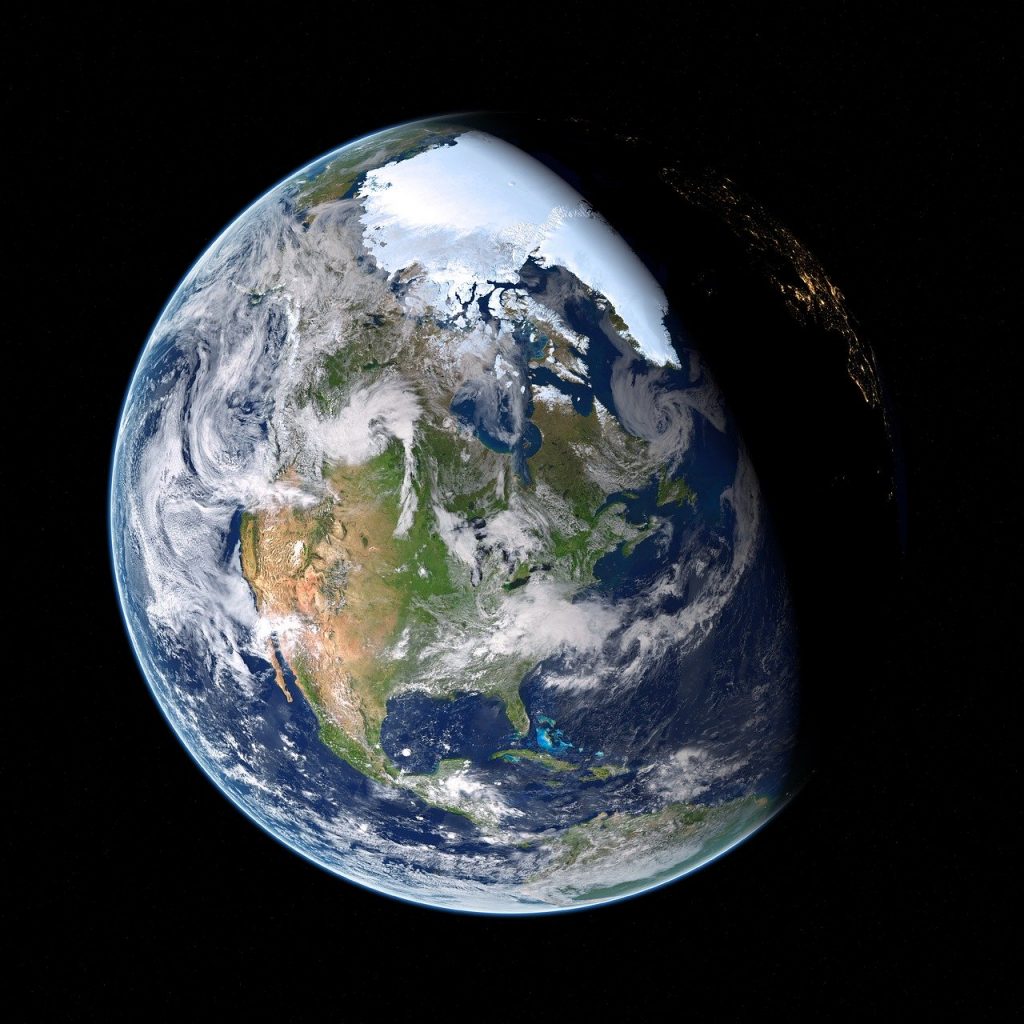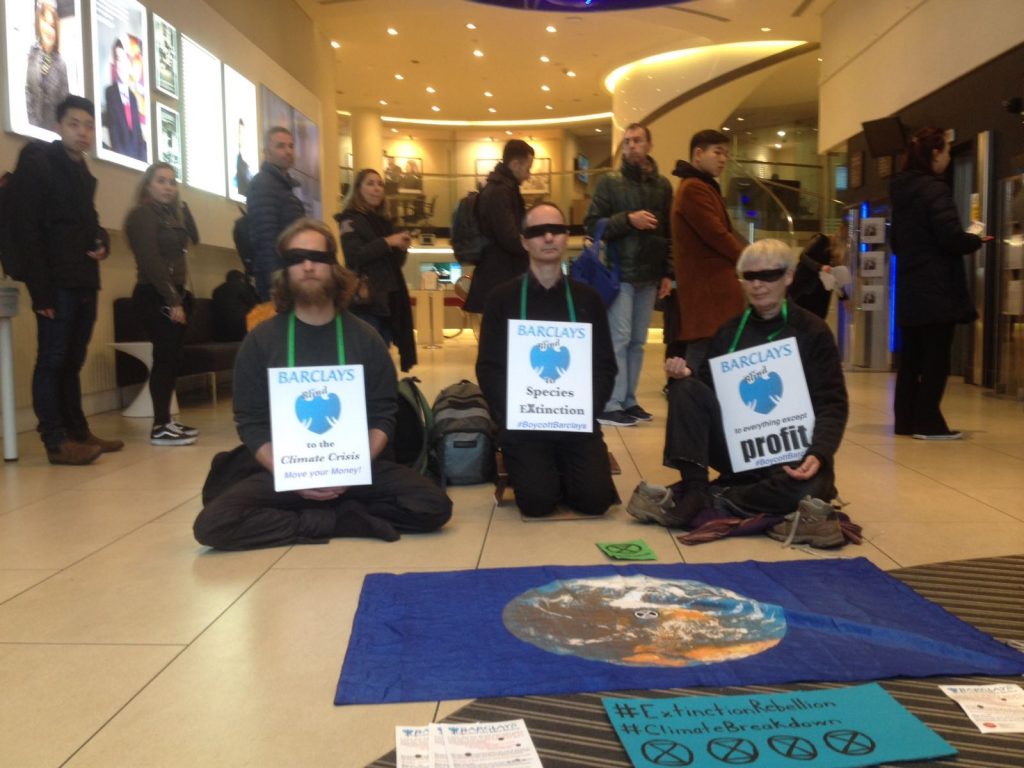July Newsletter
Sign up here: Subscribe
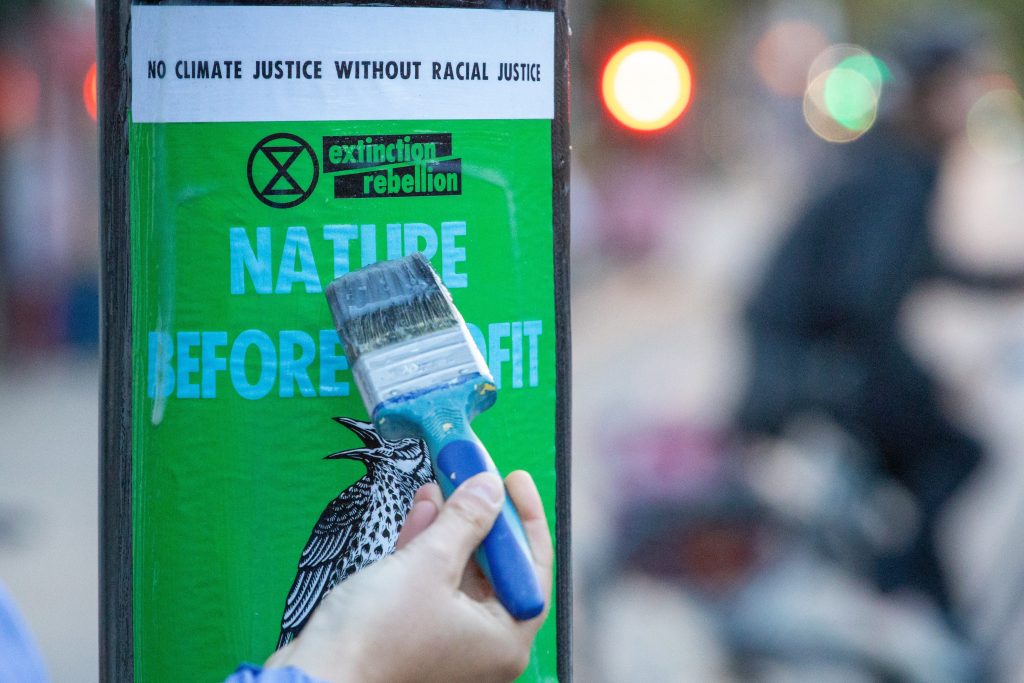
This is a time of upheaval. In that upheaval things that were below the surface, come into the light, into the conscious mind. It’s sometimes instinctive to cling to what is being changed, to feel fear of the future, or get caught up in the energy of the change. For some of us this may be a time where the dharma and practice take on deeper meanings and importance, for others they may feel further away. However this newsletter finds you – welcome. You will find poetry and prose, invitations to pause, and how we are going to continue the conversation about race and XR Buddhists.
Healing Race – event hosted by XR UK Buddhists
Date: 26 July 2020, 19:00 – 20:30
Join us as we commence our healing work around racial injustice. We have been moved by the disproportionate impact of COVID-19 on BIPOC/BPOC/BAME peoples, and we have marched in support of Black Lives Matters triggered by the death of George Floyd. Action out in the world needs to be supported by action within ourselves – ‘the way out is in.” Now is the time to use our Dharma practice to begin our own personal journey into racial healing within ourselves and in our spaces, holding whatever emerges with understanding, love and compassion>
This event is open to all and will be structured to create safe spaces to hold all “racial” groups. It is designed for those practising or interested in Buddhism and engaging in environmental and/or social activism. The session will be held by Rehena and Satya, and will include meditation and sharing (individual and group) with the result of practical and personal actions towards healing.
Register at Eventbrite before the end of Sat 25th July by clicking here or using link below https://www.eventbrite.co.uk/e/healing-race-xr-buddhists-registration-111143597492
Email satya@satyarobyn.com if you have any questions.
Rehena Harilall was born and grew up as an activist in Apartheid South Africa, and was engaged in the Truth and Reconciliation work post 1994. She celebrates African and Indian heritages. She is a psychologist who now works as a management consultant in business, also mentoring and delivering leadership programmes and volunteering her skills to global south grassroots groups. She practices in the tradition of Thich Nhat Hanh with the Dharma name “True Deep Source”. She is engaged in a variety of social and earth justice movements driving fundamental societal, economic and environmental change. She has been active in the XR October Rebellion with XR Buddhists.
Satya Robyn is white and is at the beginning of her journey into exploring race. She is a Pureland Buddhist priest and runs a temple in Malvern with her husband. She works as a psychotherapist using Internal Family Systems, and has written novels and books about Buddhism. She has been a part of Extinction Rebellion since July 2019 and is co-coordinator of XR Buddhists.
We are continuing to add to the resources list for inclusive activism on our website, if you have any to add email us at web@xrbuddhists.com.
You may also enjoy “Breathe – Towards Racial Justice & Healing” with Black Buddhist Teachers Amaragita (UK) and Larry Ward (US) who will share their wisdom – calling us towards addressing and healing racial injustice in our practice and in our challenging of racially unjust structures to protect the Earth all her beings. This event is on Sunday 9th August at 1900. Click the Eventbrite link for more details.
Fourth Demand
There are discussions in XR happening at the moment at all levels about a “fourth demand”. Several local UK groups have also set out a fourth demand that states “We demand a just transition to a green economy that prioritises the needs of all people who experience the inequalities caused by centuries of colonial, gender and class exploitation, thereby aiming to redress this discrimination going forward.” We have been discussing this as XR Buddhists and whether as a group we want to endorse this. If you are interested in this discussion then please let us know at info@xrbuddhists.com.
Buddhist Action Month talks
Several XR Buddhist members have been involved in Buddhist Action Month, which this year had the theme ‘…for the Earth’. Check out the talks below!
Yogaratna talking on the Dharma and activism, particularly environmental.
Buddhist non violent protest ‘For the Earth’: talk by Maitrisiddhi
We launched Buddhist Action Month 2020 with this event. Featuring speakers Emilie Parry, Kaspalita Thompson, Joe Mishan and Narapa Steve Johnson, facilitated by Olivia Fuchs and Juliet Hackney.
Radical Dharma
“We strongly believe that now is the time for us to begin having this conversation about the responsibility of the Buddhist community to confront white supremacy in our sanghas and in our communities. We recognized that this particular moment calls for a particular kind of conversation about and attention to what has been missing from our dharma practise – an integration of the ways we are present or not to the issues of race, love and liberation that shapes our collective wakening.” – Radical Dharma
The murder of Floyd George and the resurgence of the Black Live Matter movement has shifted something in the global consciousness, and in my own. And in the past few weeks I’ve been reading and listening to material which speaks to the Black experience in the US and UK, as well as beginning to grapple with my own whiteness and my own actions which contribute to white supremacy. As part of this process I started reading Radical Dharma: Talking Race, Love and Liberation by Rev angel Kyodo Williams, Lama Rod Owens and Jasmine Syedullah, three Black, queer, Buddhists living in America.
Some of my most powerful experiences in Buddhism are when people are sharing their lives. It makes me feel open and tender, and this is what reading this book felt like. The book is a mixture of essays and transcribed conversations between the three authors. The authors talk about their own experiences of coming to the dharma, and how that experience was informed by their blackness, and their queerness. There is something very powerful about people speaking their own truths in this way. It made me realise how important it is to be able to see whiteness, to understand its historical and current power. This book felt like waking up.
– Mikey
Telegram
We have set up a Telegram channel for general XR Buddhists chat, this is a place for sharing resources, asking questions, etc. To get to the Telegram channel, you need to install Telegram and then click here. If you have any problems then email us at info@xrbuddhists.com.
Lessons from Covid-19, Urgency, Refuge & Hope
Why did the nation respond so quickly and dramatically to Covid-19, and why aren’t we responding like that to the climate crisis? What can Buddhist activists learn? Kaspalita’s article answers this question. Including insight from nature writers Julian Hoffman and Patrick Barkham.
Postering in Cambridge
A bunch of Buddhists (that’s the collective noun, right) went postering a few weeks ago in Cambridge – that’s the photo at the top of this newsletter! A highly recommended activity for the late summer evenings. In the next stage the group are considering getting some bespoke posters together to explain the specific misdeeds of companies they are thinking of postering….
Thursday Pause
Check in with other folks from XR and join in with a guided meditation each Thursday at 1.30pm. Lead by members of XR Buddhists. All welcome. These sessions are open to any and all XR folk. We’d like to make this valuable resource available to as many as possible: please do share the link with your local XR groups. Zoom link.
And finally…rebellion
Rumours of the next Rebellion are circulating! Keep an eye on the next version of this newsletter where we will have more details on what XR Buddhists will be doing. Forward this newsletter to anyone you think would be interested in and encourage them to get involved by subscribing.
Thanks for the lovely emails about the last newsletter. As ever you can see any upcoming events here on our website, and our next XR Buddhists meeting is due to be Friday 17th July at 1600 – check our events page for the details or email us at info@xrbuddhists.com.
Love and rebellion,
The XR Buddhist team
Photo credit: Jeremy Peters (@sanditthiko)

